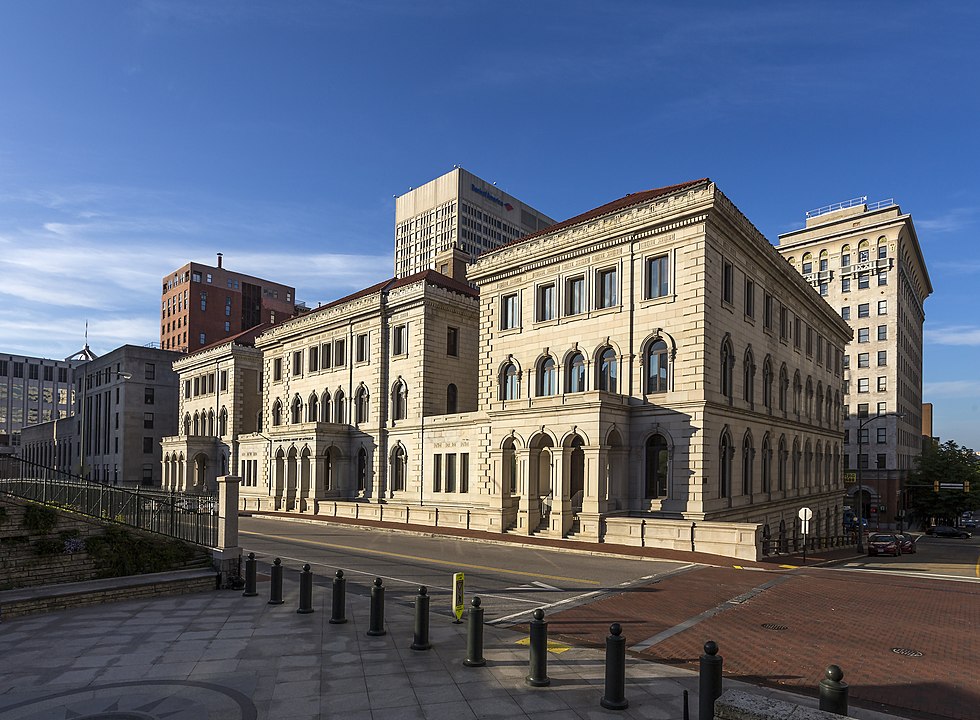RICHMOND, Va. (CN) — Finding the order has legitimate national-security justifications, a Fourth Circuit panel on Monday threw out a renewed challenge to President Donald Trump’s ban on travelers from several predominantly Muslim countries.
U.S. Circuit Judge Paul V. Niemeyer wrote in the 34-page opinion that the Richmond-based appeals court has addressed Trump’s attempts to limit travel by executive order three times, and the latest case must be dismissed in light of the high court’s 2018 decision to uphold the restrictions for national security reasons.
“[Trump’s executive order] restricts the entry of foreign nationals from specified countries, giving reasons for doing so that are related to national security, and it makes no reference to religion,” the George H. W. Bush appointee wrote, stressing the remedy requested and the arguments made by group of U.S. citizens whose family members were denied entry into the country under the 2017 ban demanded a higher level of scrutiny.
The evidence of discrimination provided by the plaintiffs — Trump’s anti-Islam comments in tweets and on the 2016 campaign trail — failed to meet that standard, Niemeyer wrote in the unanimous decision.
The countries targeted by the most recent version of the travel ban include six Muslim-majority nations — Chad, Iran, Libya, Syria, Yemen and Somalia — plus Venezuela and North Korea. It is the third version of the ban and it remains in effect.
“The proclamation itself states that, following a comprehensive, global review, the eight countries selected for some form of entry restriction were found to have inadequate practices for providing information to U.S. immigration officials or to otherwise present a heightened risk of terrorism,” Niemeyer wrote. “These are most certainly ‘facially legitimate and bona fide’ reasons within the meaning of [the higher scrutiny precedent].”
Niemeyer was joined on the three-judge panel by U.S. Circuit Judges Steven Agee, a George W. Bush appointee, and Julius N. Richardson, a Trump appointee.
During oral arguments in the case in January, attorneys for the plaintiffs urged the Fourth Circuit to open up Trump’s office to discovery to better understand the origin of the ban.
The hearing, however, was dominated by the judges questioning if any new evidence could overcome the incredibly high threshold the families would need to hit to successfully challenge the national security excuse.
A federal judge in Maryland refused to throw out the case last year, finding the plaintiffs had sufficiently alleged the travel ban “was motivated only by an illegitimate hostility to Muslims,” not by national security concerns.
But Monday’s ruling vacates that decision and sends the case back to U.S. District Judge Theodore Chuang, a Barack Obama appointee, with instructions to instructions to dismiss with prejudice, all but killing this and future efforts to challenge the ban.
Attempts to reach Mark Mosier, an attorney with the Washington, D.C.-based Covington & Burling who argued on behalf of the families, was not retuned by press time. A request for comment from the Justice Department was also not returned.
The Supreme Court’s 5-4 decision to uphold the ban in 2018 drew a dissenting opinion from the court’s liberal wing that compared the policy to the United States’ history of forcing Japanese-Americans into internment camps during World War II.
“As here, the government invoked an ill-defined national-security threat to justify an exclusionary policy of sweeping proportion,” Justice Sonia Sotomayor wrote, also saying “history will not look kindly upon the court’s misguided decision.”
But Chief Justice John Roberts, writing for the conservative majority, pushed back on the comparison and instead found Trump’s travel ban to be a “facially neutral policy denying certain foreign nationals the privilege of admission.”
“The entry suspension is an act that is well within executive authority and could have been taken by any other president,” Roberts wrote. “The only question is evaluating the actions of this particular president in promulgating an otherwise valid proclamation.”
Subscribe to Closing Arguments
Sign up for new weekly newsletter Closing Arguments to get the latest about ongoing trials, major litigation and hot cases and rulings in courthouses around the U.S. and the world.








